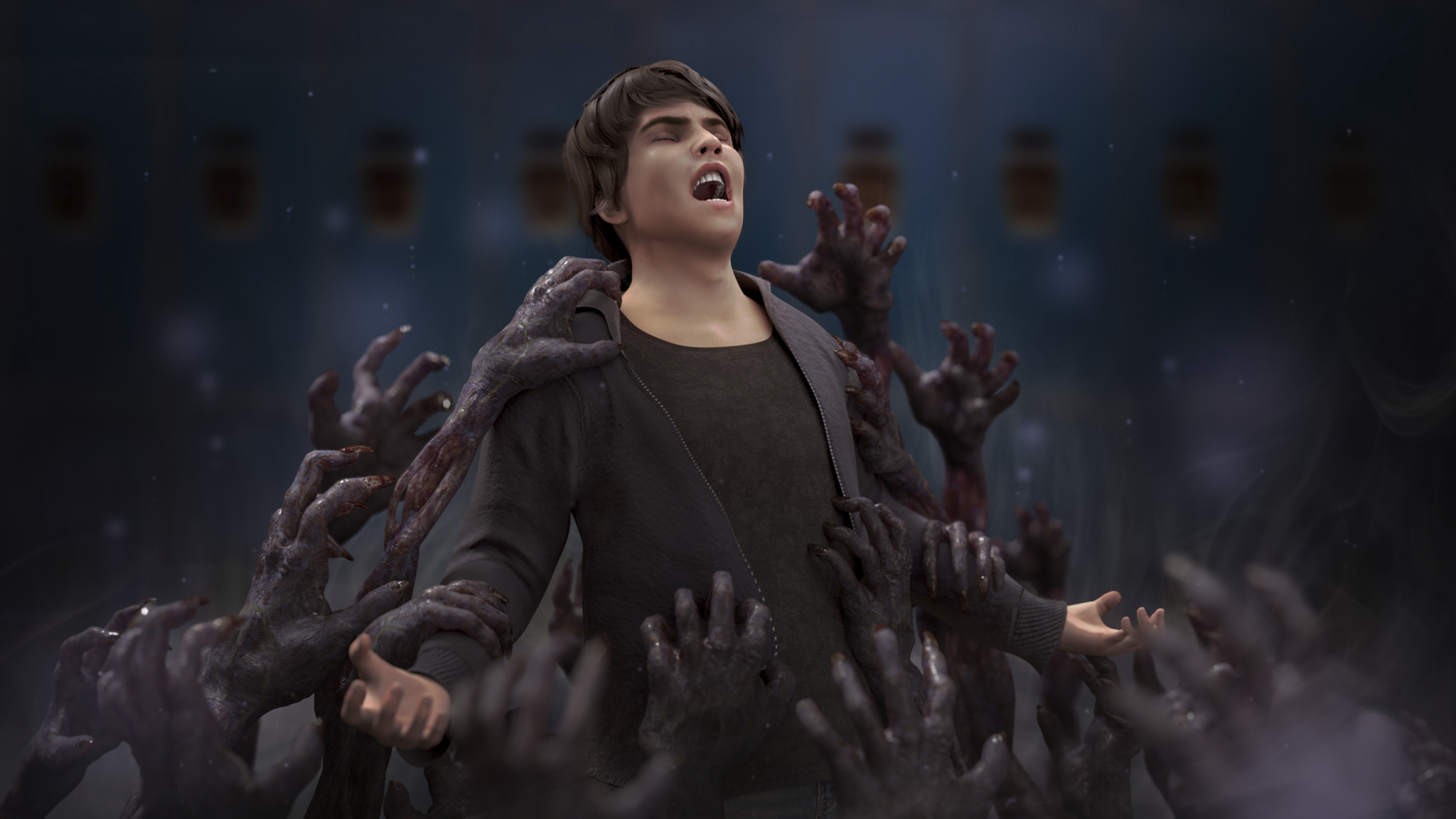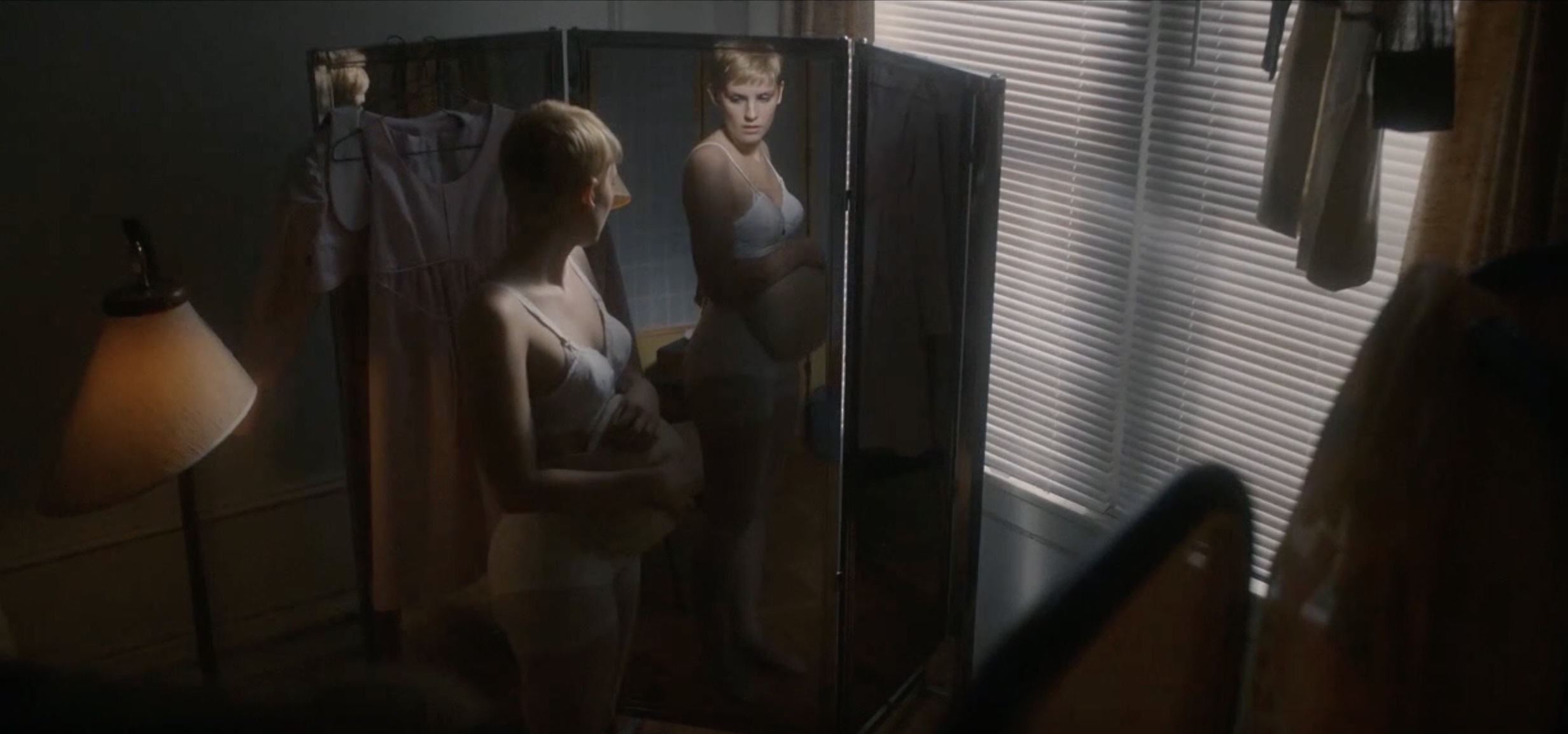Reviews
[Review] The Nightmarish Drug-Trip of ‘What Happened’ Is Soured by Its Tonal Inconsistencies

Rarely is a title as apt as What Happened is for this game. Though it’s missing at least three question marks.
On a positive level, you say ‘what happened?’ because the game takes some inventive and frankly gonzo horror visual steps in depicting its protagonist’s downbeat nightmare acid trip. It’s a shame then, that it’s not quite as consistently adept at handling its examination of a teenager’s mental health.
It would be extremely easy to mock the attempts at empathy and mental health depiction What Happened throws at you, even if it means well. It’s trippy nature does not excuse the often jarring tonal shifts, for instance. What you can’t call What Happened is boring. The game is quite fittingly, a chaotic mess of things happening that you can’t quite help but be entranced by.

What Happened begins with our protagonist, high-schooler Stiles, locked in combat with his own mental demons, which leads to him doing acid (apparently not the first time) in the bathroom of his high school. It’s already clear that Stiles is using acid as an escape from bullying, his failed relationship, his broken friendship, and perhaps something darker. Can Stiles get through this trip? He, and you, will have to navigate the ever-changing labyrinth of his mind, solving puzzles and facing up to the reality of his past.
From the off, What Happened leans heavily into its acid trip gone wrong. The swirling blend of reality, past, present, and the surreal get disorientating, and captures the mind space of Stiles’s anxiety and drug-addled brain. Fleeting memories of bad life experiences manifest as twisted nightmares, with deliberately jarring narrative jumps from moment to moment as Stiles’ and the player’s point of view continuously slips in and out of focus, and pulses with color. The game toys with player expectation and perspective in much the same manner as Bloober Team’s Layers of Fear, with the flick of a switch or turn of the head affecting the reality of what stands before you.
This is the most effective aspect of What Happened. It portrays Stiles’ drug trip and anxiety pretty well. Whether by design or by accident, controlling Stiles and interacting with his world aren’t particularly smooth, in fact, it’s often downright unpleasant. That does seem to be the point though, you’re not supposed to enjoy this, you’re supposed to empathize with it. Which is, unfortunately, the cause of What Happened’s biggest problem, its tone.

I absolutely could understand the developers wanted to instill empathy in the player by showing them how fucked up and unpleasant life is for this suicidal, drug-addicted teen, and there are times it manages to capture that effectively. There are sweet and tender moments where Stiles recalls happier moments and times people did care for him. There’s an inventive scene depicting Stiles’ relationship with his ex-girlfriend via a puppet show. It’s the rare combination of the game doing something a bit silly and making it mean something.
Stiles doesn’t initially come across as a sympathetic character however, which, initially, made it hard to want to help him through this self-inflicted acid nightmare. Yes, his poor mental health clearly causes his self-destructive tendencies, but even with the bullying, the early part of What Happened makes him look like a bit of a self-absorbed prick. That does change as you uncover more about him, but the crux of the story is your empathy for him is supposed to shape the outcome, and again, it may be by design, but it’s a little late in the day to roll back your earlier impression in gameplay terms.
The other contributing factor is how silly the game can be. A bit of levity is absolutely welcome in a game about mental health and drug abuse, but it’s either unintentionally silly or completely out of place with the tone.

Having a game open with a distraught teen trying to escape from the world he believes hates him by taking acid doesn’t drive home its tone quite as well as it should when it involves a disembodied voice telling you to ‘enjoy your poo’ in a sing-song voice, and features a psychedelic journey down a toilet bowl.
The storytelling suffers somewhat due to the choppy, non-sequential delivery (though it does also serve the acid trip effect). Sometimes it just feels like points are made by bludgeoning the player with them as quickly as possible in order to move on to the next, rather than building up genuine empathy and understanding.
For all its faults, it’s hard to argue against the intent and ambition of What Happened. It doesn’t always get things right, but it clearly has good intentions to deliver an engaging and heartfelt depiction of mental health issues and a nauseatingly effective drug trip. It’s to the credit of the developers that it succeeds on the latter at least, and shows potential in the former.

What Happened review key for PC provided by the publisher.
What Happened is out now on Steam, with a console release yet to be determined.

Reviews
“AHS: Delicate” Review – “Little Gold Man” Mixes Oscar Fever & Baby Fever into the Perfect Product

‘AHS: Delicate’ enters early labor with a fun, frenzied episode that finds the perfect tone and goes for broke as its water breaks.
“I’ll figure it out. Women always do.”
American Horror Story is no stranger to remixing real-life history with ludicrous, heightened Murphy-isms, whether it’s AHS: 1984’s incorporation of Richard Ramirez, AHS: Cult’s use of Valerie Solanas, or AHS: Coven’s prominent role for the Axeman of New Orleans. Accordingly, it’s very much par for the course for AHS: Delicate to riff on other pop culture touchstones and infinitely warp them to its wicked whims. That being said, it takes real guts to do a postmodern feminist version of Rosemary’s Baby and then actually put Mia Farrow – while she’s filming Rosemary’s Baby, no less – into the narrative. This is the type of gonzo bullshit that I want out of American Horror Story! Sharon Tate even shows up for a minute because why the hell not? Make no mistake, this is completely absurd, but the right kind of campy absurdity that’s consistently been in American Horror Story’s wheelhouse since its inception. It’s a wild introduction that sets up an Oscar-centric AHS: Delicate episode for success. “Little Gold Man” is a chaotic episode that’s worth its weight in gold and starts to bring this contentious season home.
It’d be one thing if “Little Gold Man” just featured a brief detour to 1967 so that this season of pregnancy horror could cross off Rosemary’s Baby from its checklist. AHS: Delicate gets more ambitious with its revisionist history and goes so far as to say that Mia Farrow and Anna Victoria Alcott are similarly plagued. “Little Gold Man” intentionally gives Frank Sinatra dialogue that’s basically verbatim from Dex Harding Sr., which indicates that this demonic curse has been ruffling Hollywood’s feathers for the better part of a century. Anna Victoria Alcott’s Oscar-nominated feature film, The Auteur, is evidently no different than Rosemary’s Baby. It’s merely Satanic forces’ latest attempt to cultivate the “perfect product.” “Little Gold Man” even implies that the only reason that Mia Farrow didn’t go on to make waves at the 1969 Academy Awards and ends up with her twisted lot in life is because she couldn’t properly commit to Siobhan’s scheme, unlike Anna.
This is easily one of American Horror Story’s more ridiculous cold opens, but there’s a lot of love for the horror genre and Hollywood that pumps through its veins. If Hollywood needs to be a part of AHS: Delicate’s story then this is actually the perfect connective tissue. On that note, Claire DeJean plays Sharon Tate in “Little Gold Man” and does fine work with the brief scene. However, it would have been a nice, subtle nod of continuity if AHS: Delicate brought back Rachel Roberts who previously portrayed Tate in AHS: Cult. “Little Gold Man” still makes its point and to echo a famous line from Jennifer Lynch’s father’s television masterpiece: “It is happening again.”
“Little Gold Man” is rich in sequences where Anna just rides the waves of success and enjoys her blossoming fame. She feels empowered and begins to finally take control of her life, rather than let it push her around and get under her skin like a gestating fetus. Anna’s success coincides with a colossal exposition dump from Tavi Gevinson’s Cora, a character who’s been absent for so long that we were all seemingly meant to forget that she was ever someone who was supposed to be significant. Cora has apparently been the one pulling many of Anna’s strings all along as she goes Single White Female, rather than Anna having a case of Repulsion. It’s an explanation that oddly works and feeds into the episode’s more general message of dreams becoming nightmares. Cora continuing to stay aligned with Dr. Hill because she has student loans is also somehow, tragically the perfect explanation for her abhorrent behavior. It’s not the most outlandish series of events in an episode that also briefly gives Anna alligator legs and makes Emma Roberts and Kim Kardashian kiss.

“Little Gold Man” often feels like it hits the fast-forward button as it delivers more answers, much in the same vein as last week’s “Ava Hestia.” These episodes are two sides of the same coin and it’s surely no coincidence that they’re both directed by Jennifer Lynch. This season has benefitted from being entirely written by Halley Feiffer – a first for the series – but it’s unfortunate that Lynch couldn’t direct every episode of AHS: Delicate instead of just four out of nine entries. That’s not to say that a version of this season that was unilaterally directed by Lynch would have been without its issues. However, it’s likely that there’d be a better sense of synergy across the season with fewer redundancies. She’s responsible for the best episodes of AHS: Delicate and it’s a disappointment that she won’t be the one who closes the season out in next week’s finale.
To this point, “Little Gold Man” utilizes immaculate pacing that helps this episode breeze by. Anna’s Oscar nomination and the awards ceremony are in the same episode, whereas it feels like “Part 1” of the season would have spaced these events out over four or five episodes. This frenzied tempo works in “Little Gold Man’s” favor as AHS: Delicate speed-runs to its finish instead of getting lost in laborious plotting and unnecessary storytelling. This is how the entire season should have been. Although it’s also worth pointing out that this is by far the shortest episode of American Horror Story to date at only 34 minutes. It’s a shame that the season’s strongest entries have also been the ones with the least amount of content. There could have been a whole other act to “Little Gold Man,” or at the least, a substantially longer cold open that got more out of its Mia Farrow mayhem.
“Little Gold Man” is an American Horror Story episode that does everything right, but is still forced to contend with three-quarters of a subpar season. “Part 2” of AHS: Delicate actually helps the season’s first five episodes shine brighter in retrospect and this will definitely be a season that benefits from one long binge that doesn’t have a six-month break in the middle. Unfortunately, anyone who’s already watched it once will likely not feel compelled to experience these labor pains a second time over. With one episode to go and Anna’s potential demon offspring ready to greet the world, AHS: Delicate is poised to deliver one hell of a finale.
Although, to paraphrase Frank Sinatra, “How do you expect to be a good conclusion if this is what you’re chasing?”













You must be logged in to post a comment.